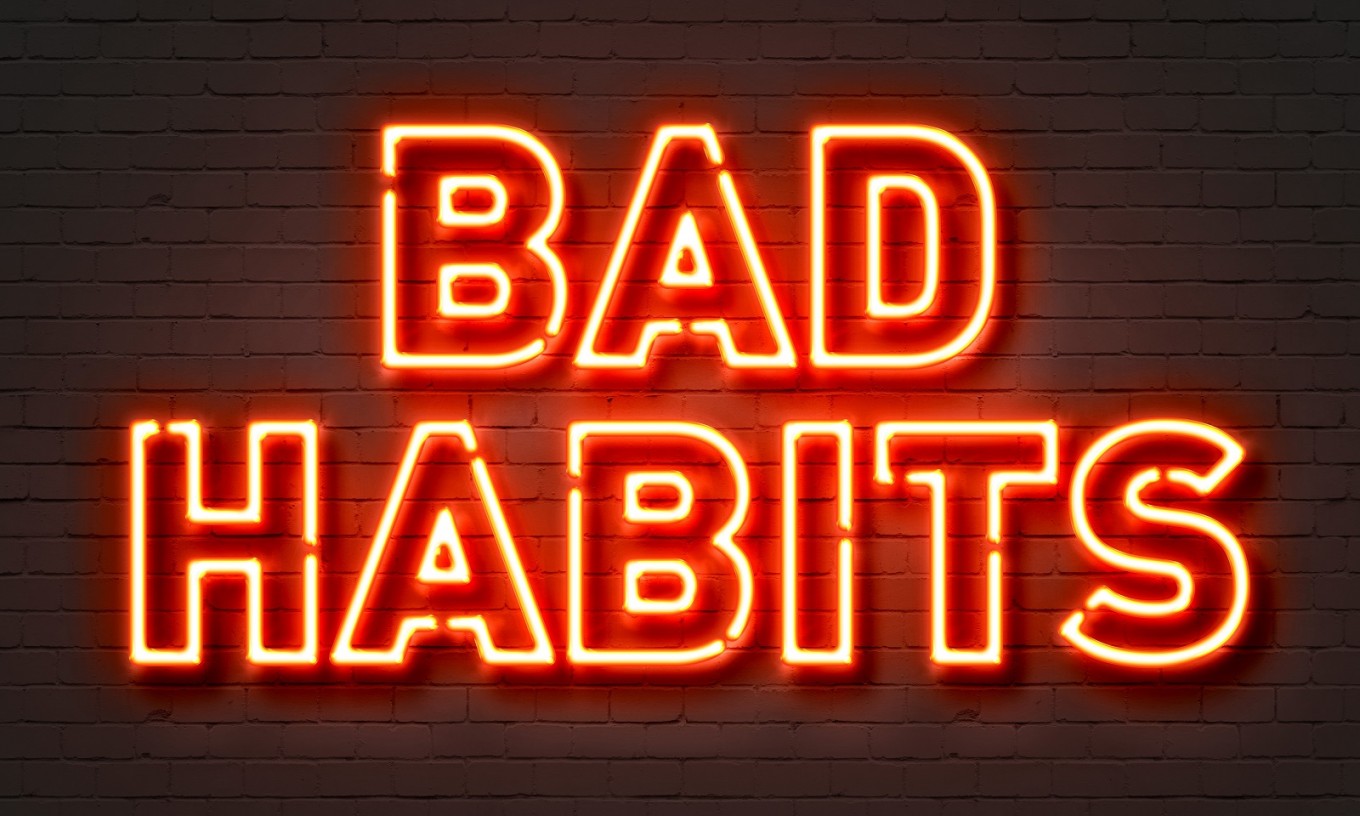Popular Reads
Top Results
Can't find what you're looking for?
View all search resultsPopular Reads
Top Results
Can't find what you're looking for?
View all search resultsSeven bad habits that signify intelligence: Study
A study has revealed that certain bad habits may indicate our intelligence and good health.
Change text size
Gift Premium Articles
to Anyone
P
ossibly everyone is battling bad habits or on a journey to reverse them. These bad habits, for instance, are keeping a messy desk or procrastinating. These habits could be perceived negatively, but a study has revealed that some bad habits may indicate our intelligence and good health.
Kompas.com listed the positive sides of seven bad habits.
Procrastinating
A number of studies have analyzed why people like to procrastinate and try to find a way to reverse this habit. However, Wharton management professor and author Adam Grant pointed out that procrastinating doesn’t always indicate laziness.
People who procrastinate might only be waiting for the right time or take the time to develop their ideas.
Grant explained to Business Insider how Apple’s late Steve Jobs took time to seek possibilities and let more divergent ideas come up, instead of going forward with more predictable moves.
“You can’t rush creativity,” Grant concluded.
Arriving late
People who are habitually late are often considered as rude and lacking discipline. The New York Times once quoted Diana DeLonzor - author of Never Be Late Again - that these people are optimistic and unrealistic, believing that they can do a lot of different things in a short amount of time.
They are hopeful and positive, but unfortunately, their positivity could be perceived in a negative way.
Complaining
Looking at the bright side, people who complain with a specific result in mind are living a better life than those who only grumble. Especially if they channel the complaints properly.
The complaint should be effective, aiming at problem-solving and directed at the people with the authority to solve the problem.
Chewing gums
Fortunately, it is only a bad habit when it takes place on such occasions as a job interview or formal business meeting. According to www.wisebread.com, chewing motions increase blood flow to the brain, therefore improving concentration, memory and reaction.
Certain types of gum, particularly sugar-free ones, protect the teeth by reducing plaque. Meanwhile, herbal gums can relieve nausea from motion sickness.
Keeping your desk cluttered
While a neat and tidy desk might be a sign of a clear mind that’s ready for success, a cluttered desk indicates creativity.
Joseph Redden, an assistant professor of marketing at the University of Minnesota’s Carlson School of Management, was quoted by www.inc.com saying that a messy office may enhance the ability to tap into the creative solutions and ideas required to grow business.
Clutter, he went on to say, helps think outside the lines of conventional reasoning.
Redden and his colleagues also carried out a study that concluded, “Disorderly environments seem to inspire breaking free of tradition, which can produce fresh insights.”
Fidgeting
Despite it being annoying to some, fidgeting is a small physical activity that can go a long way.
www.prevention.com reported that fidgeting can make a noticeable difference in our health. A study conducted by the University of Missouri found that fidgeting helps to combat reduced blood flow and artery function typically seen when we’re seated.
Study author Robert Restaino, a graduate research assistant at the University of Missouri, said sitting for a long time every day causes reduced blood flow that piles up over time and can have detrimental effects from the higher risk of heart disease to premature death.
Fortunately, fidgeting can help. Authors in a study conducted by University College London wrote that women who fidget constantly in between sitting for seven or more hours have a lower risk of dying prematurely.
Read also: Five habits before bedtime that may help you lose weight
Daydreaming
Josh Davis wrote in Harvard Business Review that letting our minds wander facilitates creativity, planning and putting off immediate desires in favor of future rewards. Each of those contributes to working effectively.
It has been confirmed by the journal Psychological Science, that we engage in so-called creative incubation during mind-wandering. When facing a challenge that demands fresh ideas, let the mind wander and give space to the incubation that leads to creative solutions. (mut)











